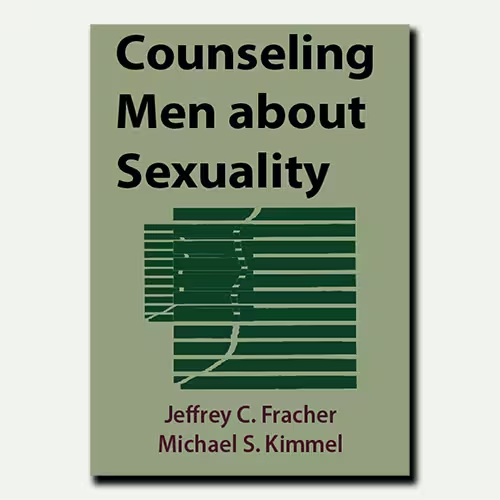Description
Hard Issues and Soft Spots: Counseling Men About Sexuality
Paper by Jeffrey C. Fracher and Michael S. Kimmel
19 pages


Nothing shows more clearly the extent to which modern society has atomized itself than the isolation in sexual ignorance which exists among us . . . . Many cultures, the most primitive and the most complex, have entertained sexual fears of an irrational sort, but probably our culture is unique in strictly isolating the individual in the fears that society has devised. (Trilling, 1954)
Sam is a 28-year-old white, single factory worker. He lives alone in a two-family home that he owns,
and attends night school at a community college.2 The third of six sons in a blue-collar, Eastern European
Catholic family, Sam is a conscientious, hard-working, and responsible man with very traditional values.
He describes himself as a sexual late-bloomer, having begun dating only after graduation from an all male
Catholic high school. Although strong and handsome, he has always lacked confidence with women, and describes himself as male peer-oriented, actively involved in sports, and spending much of
his leisure time with “the boys.”
Prior to his first sexual intercourse, two years ago at age 26, Sam had fabricated stories to tell his
friends so as not to appear inadequate. He felt a great deal of shame and embarrassment that his public
presentation of his sexual exploits had no basis in reality. His limited sexual knowledge caused him great
anxiety and difficulty, especially since the woman with whom he was involved had had previous sexual
encounters. Upon completion of intercourse, she reported that he “came too fast”(i.e., less than one
minute, or after several thrusts), a statement that he reported, “hit me between the eyes.” His second
attempt at intercourse was no more successful, despite his use of a condom to reduce sensation, and he
subsequently broke off this relationship because of the shame and embarrassment about his sexual
incompetence, and the fear that word would leak out to his friends. He subsequently developed a
secondary pattern of sexual avoidance, and when he first came to treatment, indicating that he was “not a
real man because I can’t satisfy a woman,” he had not had sex for two years, and was reluctant to resume
dating until his premature ejaculation was vastly improved.


